Disclosure: Meeple Mountain received a free copy of this product in exchange for an honest, unbiased review. This review is not intended to be an endorsement.
Webster’s Dictionary defines duple [doo-puhl] as having two elements. Duple, from the same publisher as Anomia, is a party game in which players must quickly turn two letters into a word that fits the round’s category. Duple plays very similarly to Anomia so if you’re already familiar with how it plays, then skip ahead to the Differences between Anomia and Duple section. For the rest of you fine readers, continue reading to learn how to play Duple.
How To Play Duple
To play a game of Duple, first begin by shuffling the orange Letter Cards with the Wild Cards, placing this deck of cards facedown. Then shuffle the yellow Category Cards (making sure the four All Play Cards are spread out in the deck) and place this deck faceup next to the Letter Cards.
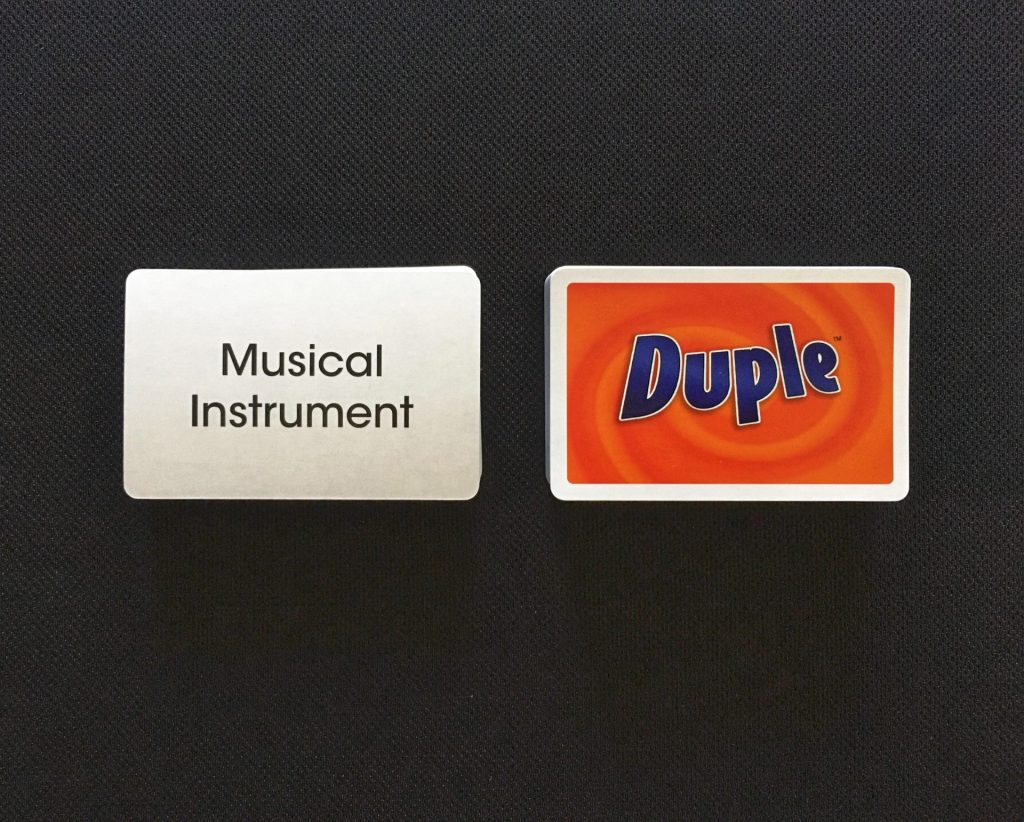
A player begins their turn by drawing an orange Letter Card from the deck and placing it faceup in front of them. A player will only ever have one faceup card visible in front of them at a time so cards drawn on future turns are placed on top of their previous card, which forms their Play Pile.
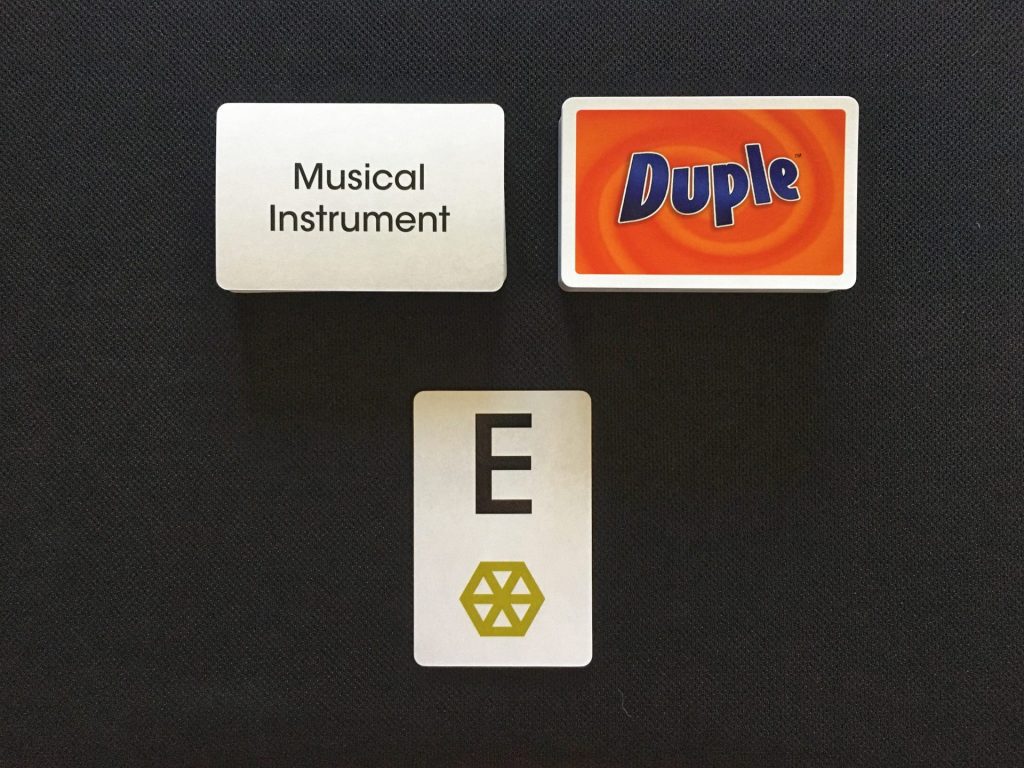
After drawing their card, the player looks around the table to see if the symbol on their card matches the symbol on an opponent’s Play Pile. If it doesn’t, the next player in clockwise order takes their turn — by drawing a card from the Letter deck. If there is a match, a Face-Off occurs.
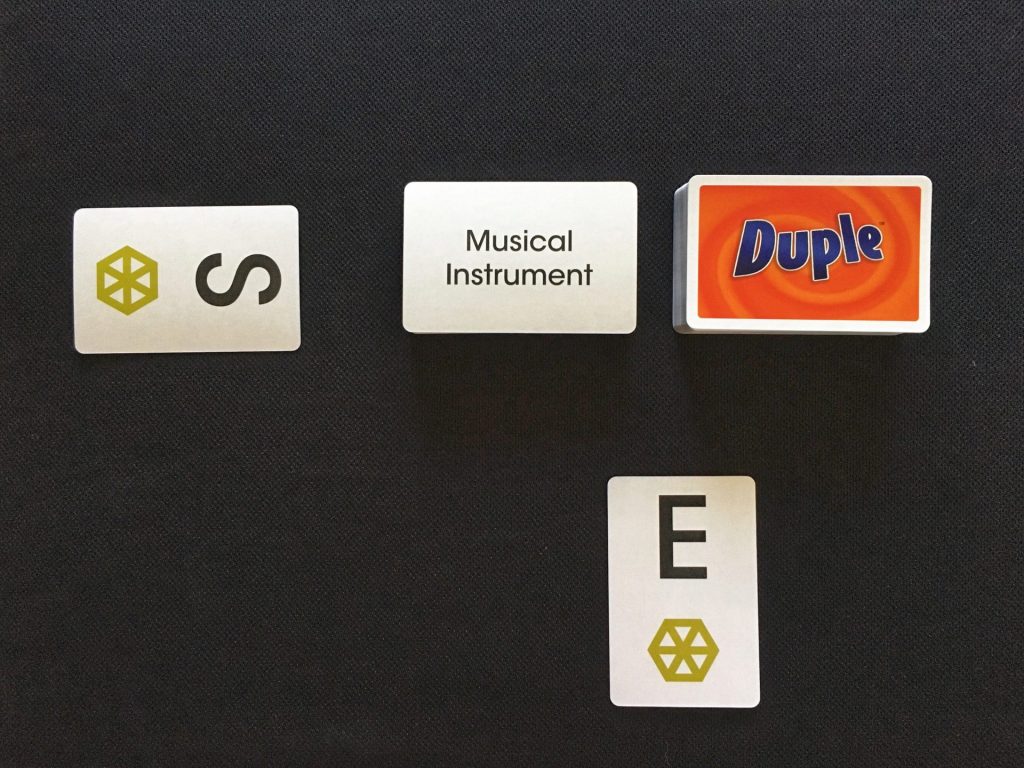
Face-Off
Two players enter a Face-Off whenever the symbols on their Letter Cards match. What this means is that the two involved players race to be the first to shout out a word that contains the letters on both matching Letter Cards and also conforms to the current Category Card (the faceup yellow card). There are a couple of rules to determine what is an “allowable answer” — single-word only unless it’s a proper noun and you can’t make an answer plural just to use up an S, for example.
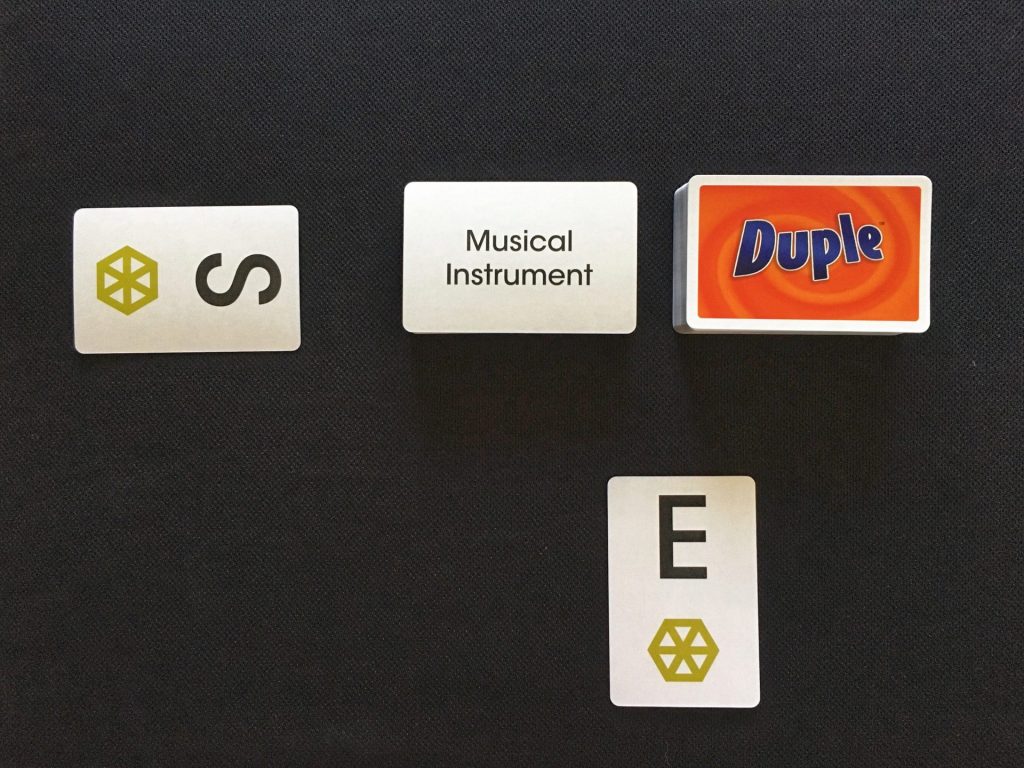
The winner of the Face-Off then discards the top Category Card, takes the Letter Card from their opponent’s Play Pile and puts it aside in a facedown score pile, known as their Winning Pile. Often this puts a new Letter Card from their opponent’s Play Pile into play, which means that this uncovered card could match someone else around the table and thus trigger another Face-Off. (When this happens, it’s called a Cascade.)
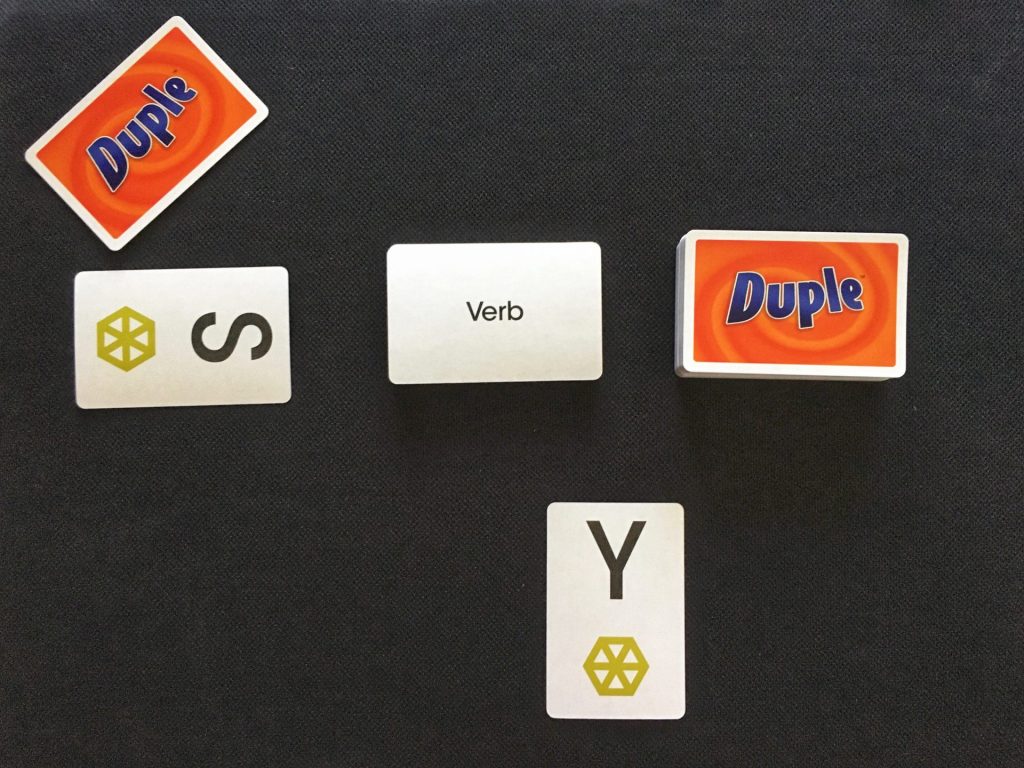
Once all Face-Offs have been resolved and there are no more matches on the table, play continues with the next player taking their turn by drawing a Letter Card.
Wild and All Play Cards
The Letter deck contains eight green Wild Cards; when one of these appears in the deck, it’s placed faceup between the Letter and Category decks. Wild Cards introduce a new rule to the game: the two symbols shown on the card are considered a match and can trigger a Face-Off.
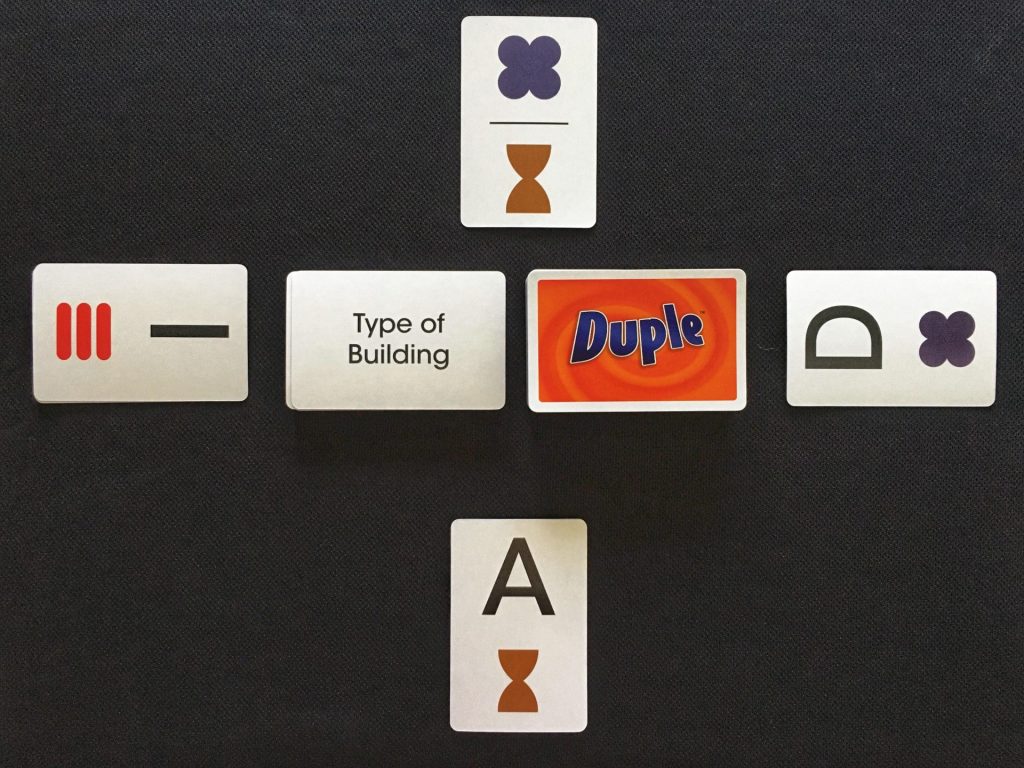
A Wild Card stays in play until a new one is drawn to replace it; there is only ever one Wild Card active.
All Play Cards appear in the Category deck. When one is revealed, all players race to think of a word that uses all the faceup letters on the table (those found on the Play Piles). Unlike Face-Offs, allowable answers for All Play Cards must be a single word and cannot be a proper noun. They also don’t have to conform to a category (since there isn’t one revealed).
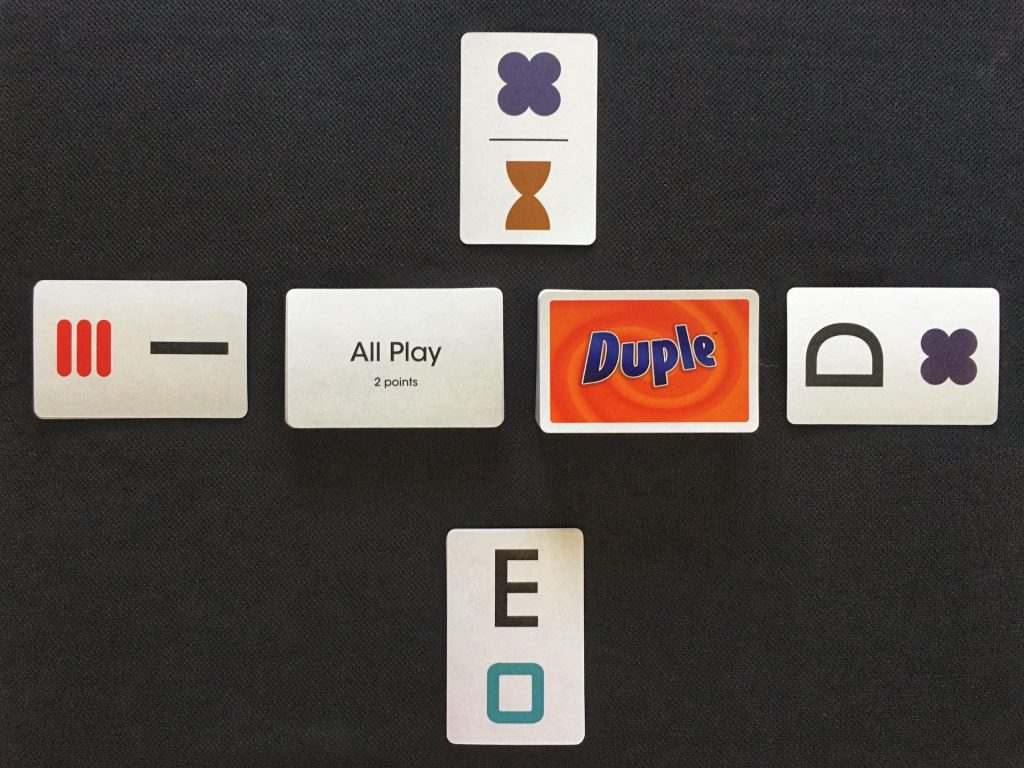
The winner of an All Play takes the card and adds it facedown to their Winning Pile.
Game End
Duple ends when there are no more Letter Cards in the draw deck. Players then count the cards in their Winning Pile; orange Letter Cards are worth one point and blue All Play Cards are worth two. The player with the most points wins.
Differences between Anomia and Duple
In Anomia each card has its own category as well as a symbol. When players face off, they must name something that fits their opponent’s category. In Duple, the cards feature a letter and a symbol instead of a category — that is found on a new, separate deck of cards: the Category Cards.
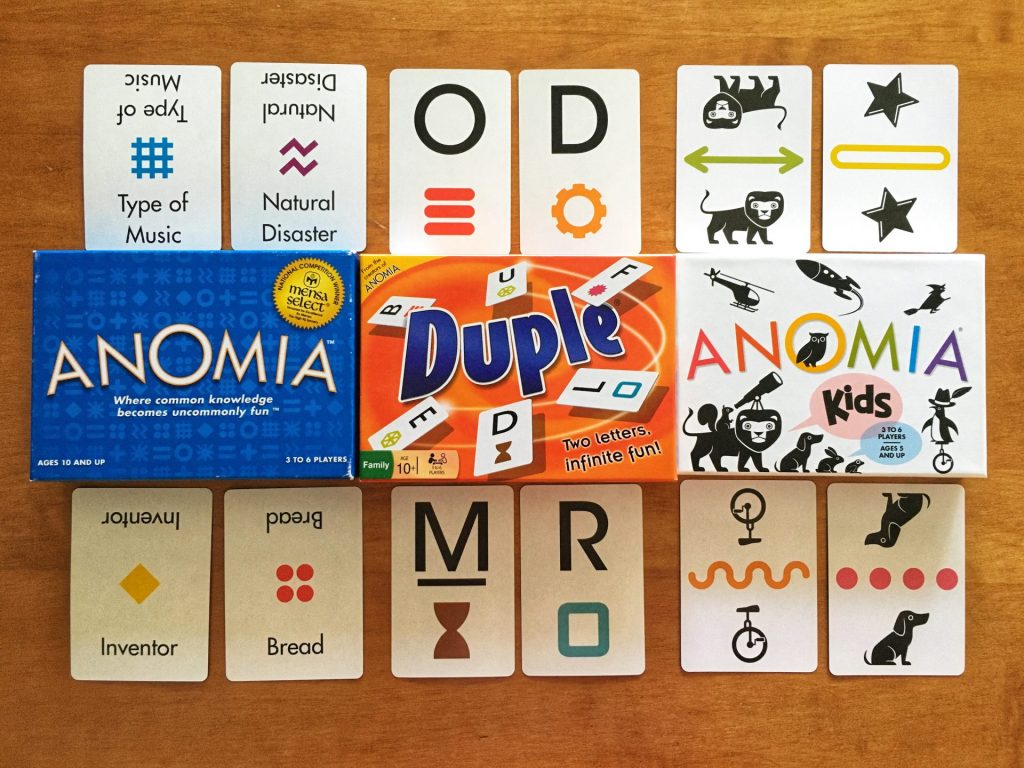
Face-Offs work the same in Duple as they do in Anomia: when two cards with matching symbols are drawn, the players with these cards face off. To face off in Duple, the involved players must name something using the two letters with the matching symbols. Their answer, however, must also conform to the Category Card.
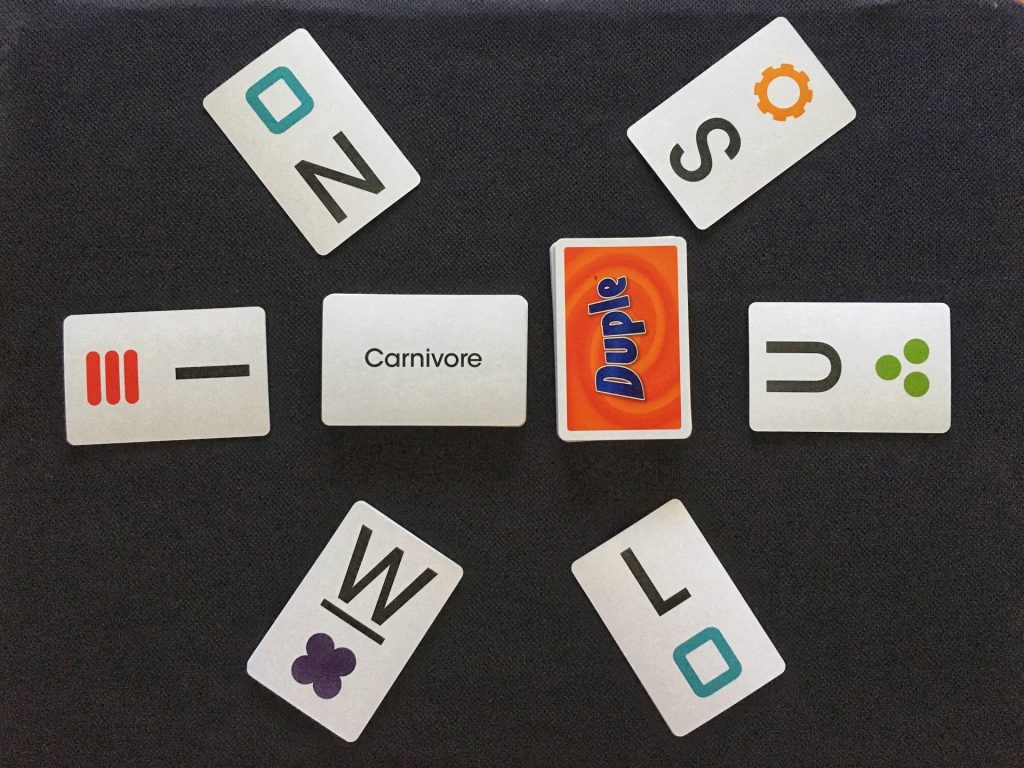
Face-Offs are resolved in Anomia and Duple in the same way — the winner takes the card from their opponent’s Play Pile — but there is one additional rule in Duple: the Category Card is discarded and a new one is revealed. Similar to Anomia, resolving a Face-Off can result in a Cascade (another Face-Off is triggered by the newly revealed card in your opponent’s Play Pile).
Additionally, Duple introduces a new card to the mix: All Play. When an All Play Card is drawn from the Category deck, players race to be the first to come up with a word using all faceup letters on the table.
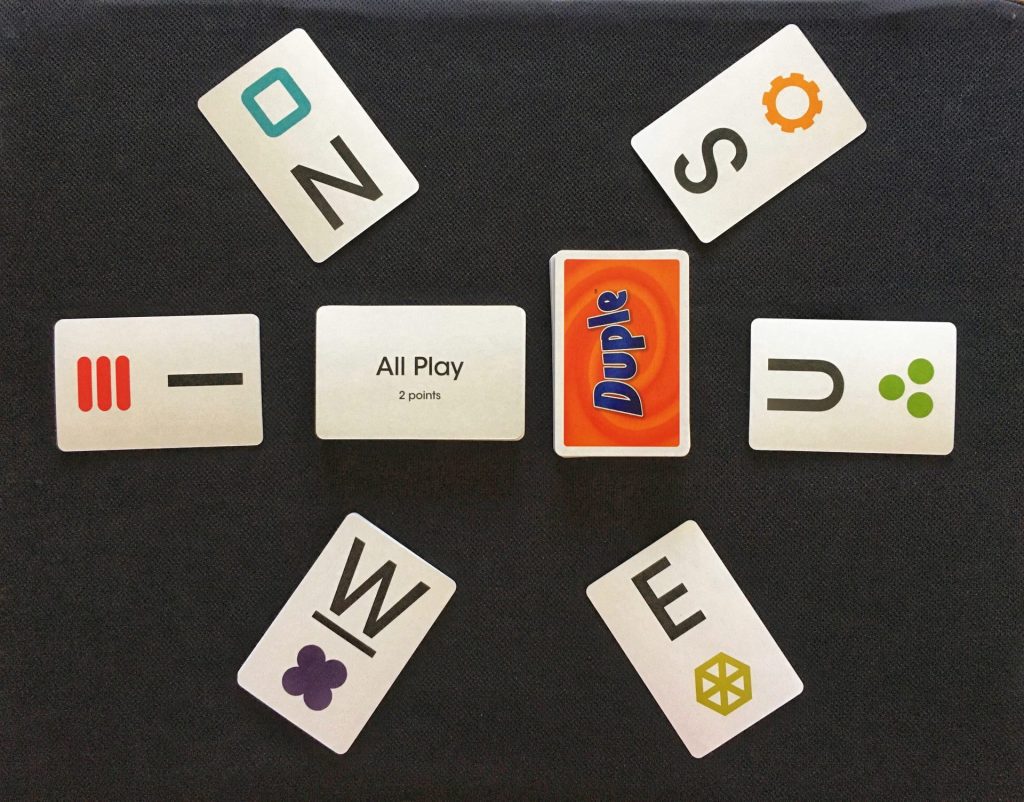
Final Thoughts
Anomia is easily in my top 6 favourite party games; I love how quickly it plays, how every player is always actively engaged, how silly and creative answers in Face-Offs tend to be, and I surprisingly even like how loud the players in the game can get.
Duple continues to do everything that Anomia does, but it adds another layer to the game. It is hilarious to play, especially when a player comes up with a word like tachycardia when they could have simply said catch in an All Play. As a spectator, it’s so cool to see other players’ brains in action during a Face-Off — what were they thinking about that their automatic response was tachycardia? When you’re in the hot seat, it’s amazing to discover some of the workings of your own brain — why did I think of such a complicated word instead of a more obvious choice?
If you like Anomia, Duple will be another hit for you. If you’ve never played Anomia and you like speed and word party games, then Duple will check all those boxes for you like it does for me.


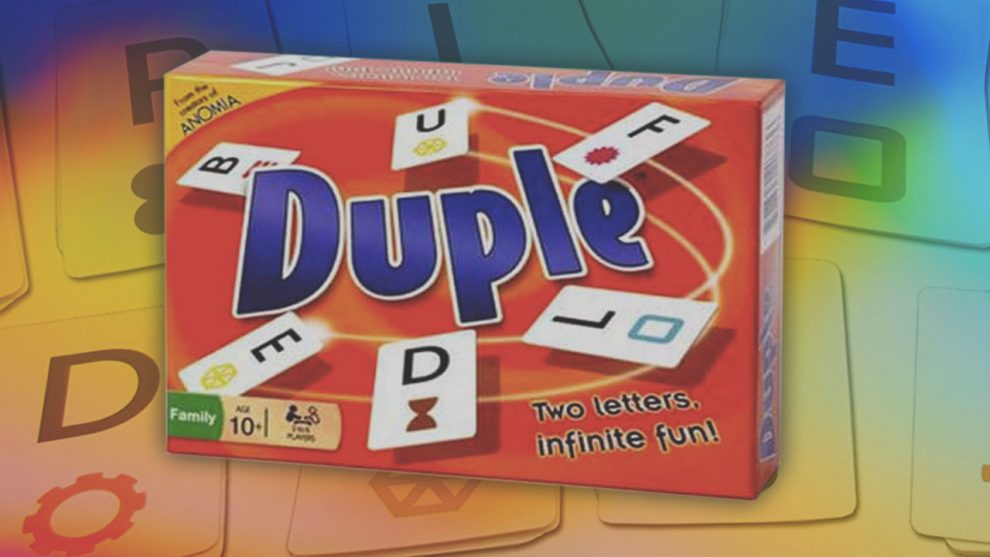
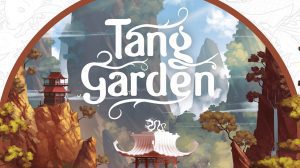
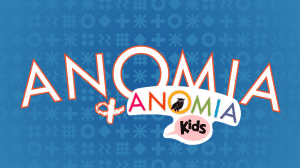

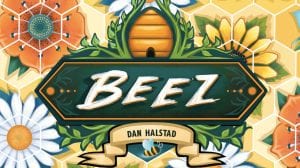




Wow! This sounds like the kind of game my in-laws would love, and I would love to play with them! Thanks for the review. I will have to check out this game, and its predecessor.